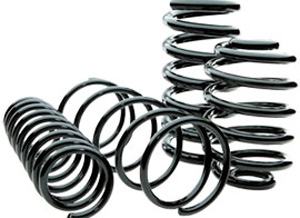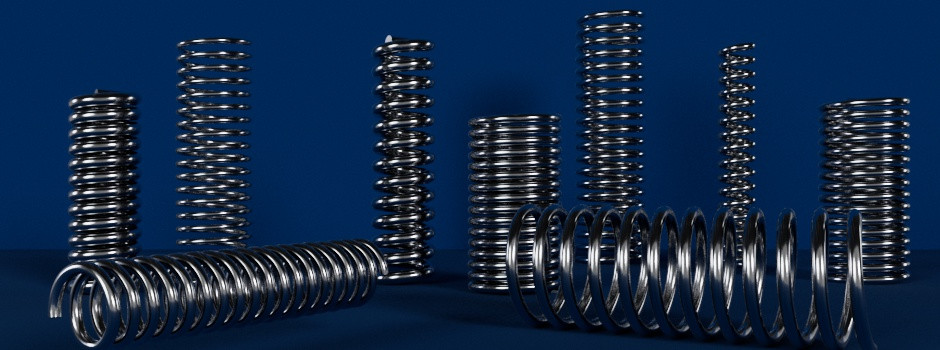High carbon cold drawn carbon steel
 This material is typically used to create springs that are not exposed to extreme temperatures. Springs made of such steel are often used to create fastening mechanisms, latches and latches. The low cost of high-carbon cold-drawn carbon steel makes it one of the most successful and rational options for the production of inexpensive high-quality springs that are not subjected to heavy loads. Other alloys are usually selected for the production of products that must withstand high pressure, such as torsion springs.
This material is typically used to create springs that are not exposed to extreme temperatures. Springs made of such steel are often used to create fastening mechanisms, latches and latches. The low cost of high-carbon cold-drawn carbon steel makes it one of the most successful and rational options for the production of inexpensive high-quality springs that are not subjected to heavy loads. Other alloys are usually selected for the production of products that must withstand high pressure, such as torsion springs.
Alloy steel
This type of steel, in addition to the standard carbon components, has various elements in its composition that make it possible to improve its properties. This material is chosen for the manufacture of springs when it is necessary to ensure their long-term operation under cyclic loads. It is used to create torsion springs, which have found application in various fields of industry – from the automotive industry to the manufacture of measuring instruments. Alloy steel is also used for the production of pressure regulators and safety valves.
Corrosion-resistant chrome-nickel alloy
When creating springs designed to work in difficult conditions, as a rule, a corrosion-resistant chromium-nickel alloy is used. The features and properties of this material make it possible to create springs that can easily withstand the effects of medium-aggressive and highly aggressive environments. The increased strength and stability of such an alloy is provided by a sufficiently high chromium content – its share in the material is up to 30%.
Heat-resistant nickel alloy
Sometimes torsion springs and other types of springs need to be used when creating mechanisms that are exposed to high temperatures. This is necessary in the manufacture of devices that operate at temperatures up to 800 degrees, for example, turbines. In this case, a heat-resistant nickel alloy is used for the production of springs. This material contains a large proportion of nickel, which reaches 70% of the total alloy composition, which allows the products to be used even at very high temperatures.
Titanium alloy
One of the most modern and technologically advanced materials used in the production of torsion springs and springs of other types is titanium and alloys based on it. These materials have gained popularity in the chemical industry due to their high resistance to corrosion. High-strength springs can be produced from titanium and alloys, which can withstand increased loads and have a long service life.
Stamo springs are made only of high-quality and modern materials, be sure of their long and reliable operation.

